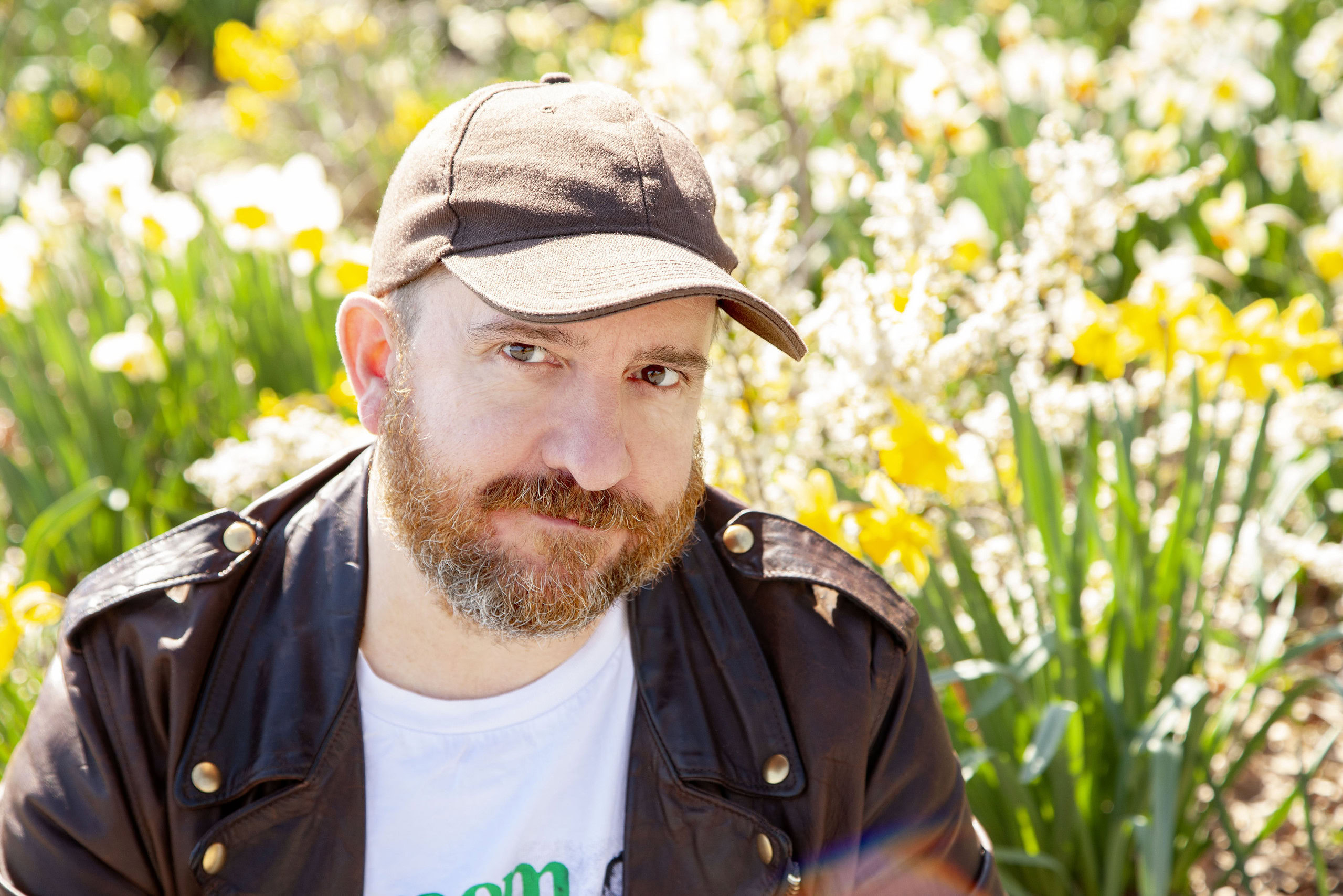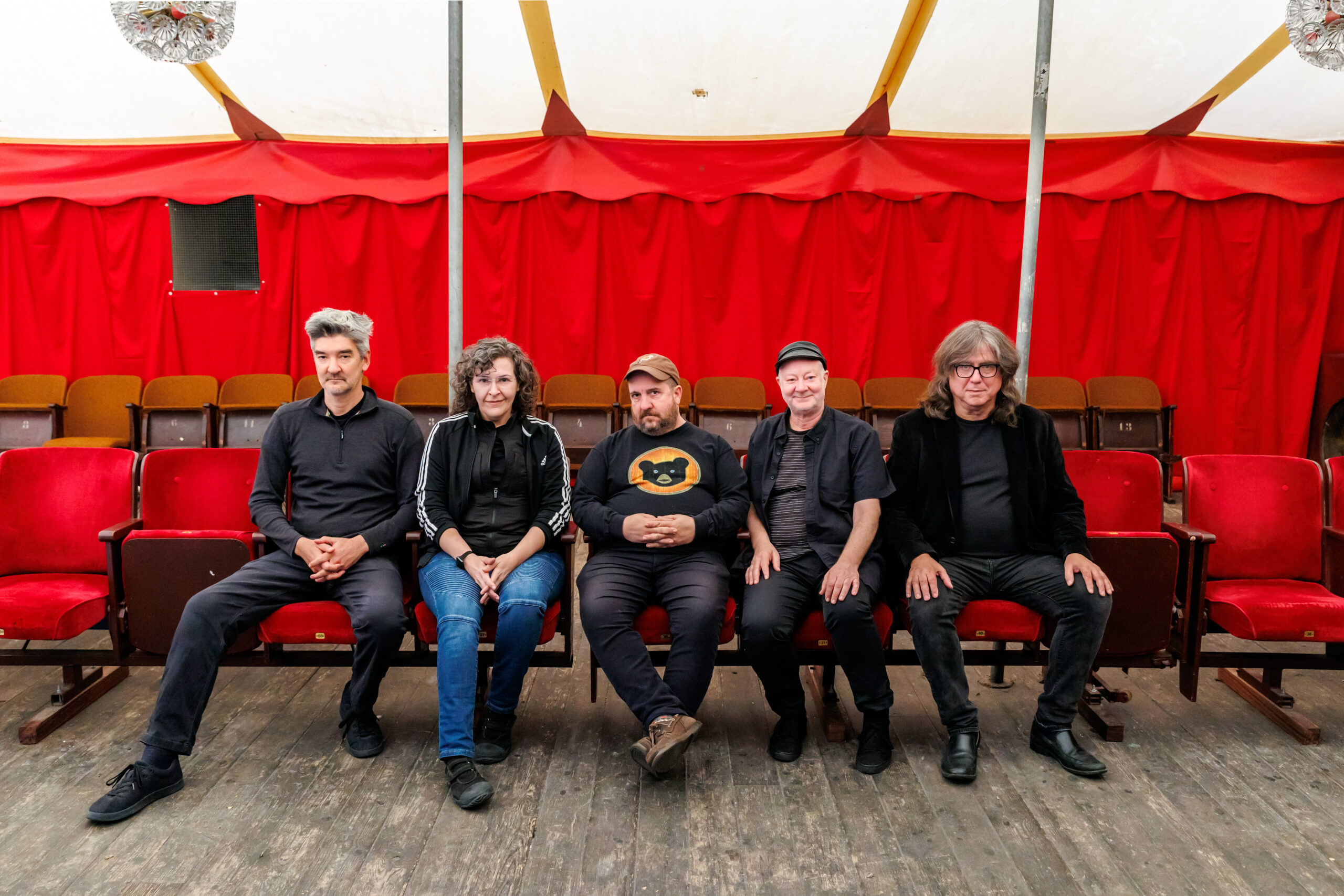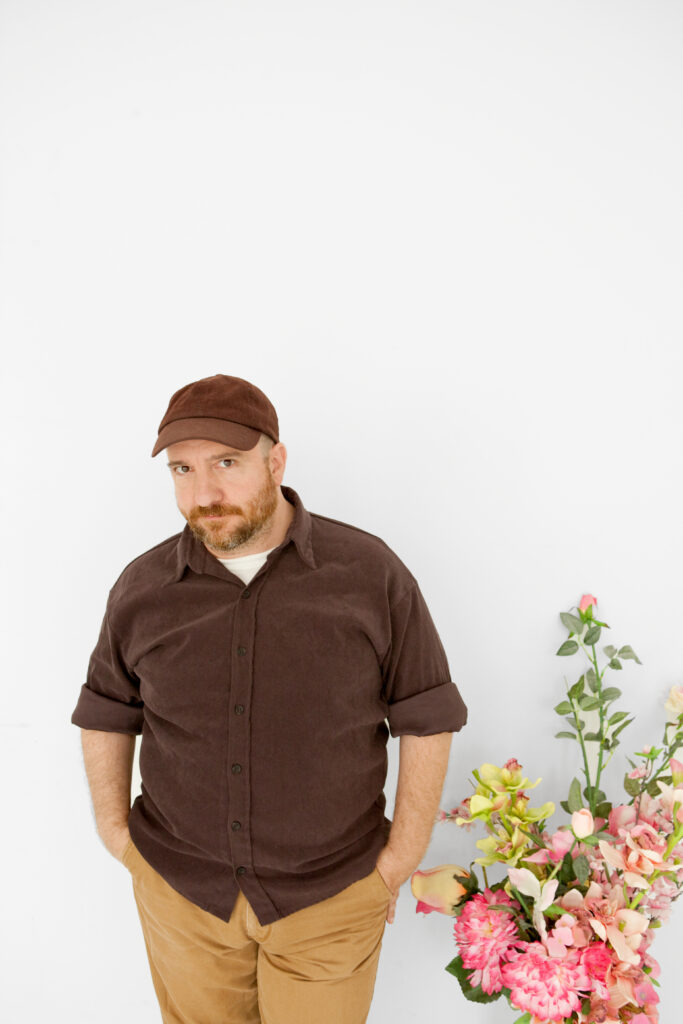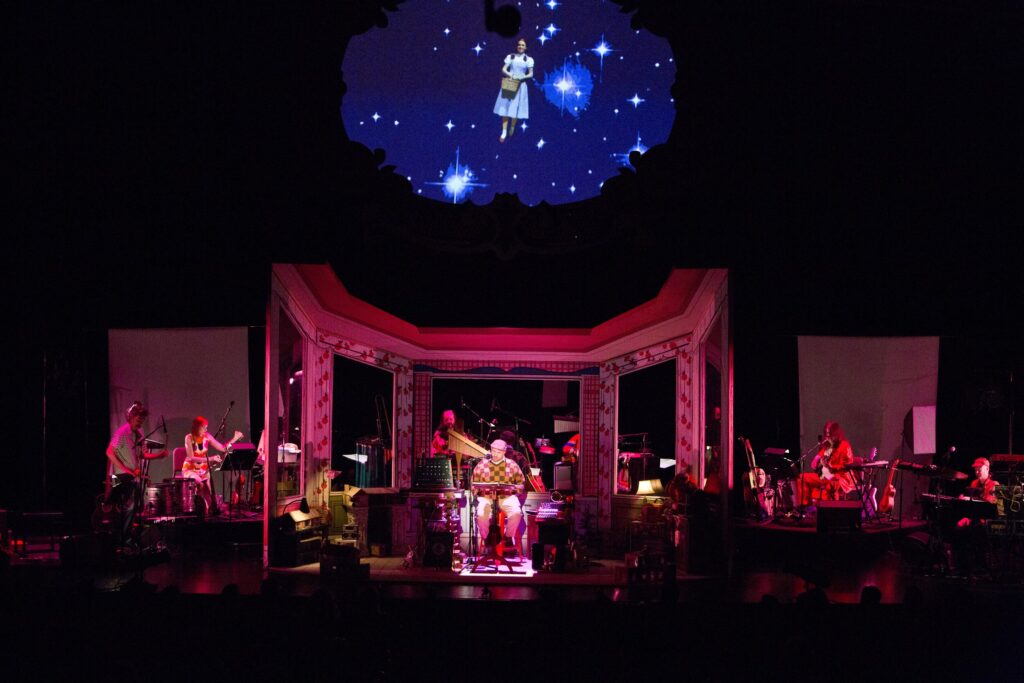
Halfway through the first installment of the multi-volume magnum opus from Stephin Merritt’s landmark project The Magnetic Fields, a disarming line upends the tenderness of the triple album’s most touching moment.
“The book of love has music in it / in fact that’s where music comes from,” the deadpan New Yorker booms in his trademark baritone over a delicately plucked acoustic guitar. “Some of it’s just transcendental / some of it’s just really dumb.”
Behold the beating heart of 69 Love Songs. Zipping between sincerity and silliness with plucky aplomb, the genre-smashing 1999 masterwork studies its title subject like a kid frying an ant with a magnifying glass. Merritt’s aptly titled tour de force delivers on its audacious promise with flair, skipping impishly across a universe of synth-pop earworms, maudlin folk ballads and showtunes-inspired melodrama.
“That’s the whole point,” he says. “I wouldn’t want to have a record with 69 of the same thing. That would be horrifying.”
But this kaleidoscopic collection would do more than scratch a creative itch for Merritt and the album’s revue-style cast of guest musicians. Dubbed one of the 500 Greatest Albums of All Time by Rolling Stone and inspiring an upcoming Broadway show starring John Mulaney, the album’s enduring afterlife is a high watermark for a project that began as a humble bedroom pop outfit in 1989.
“The whole idea was that it would be my lifelong calling card,” Merritt, 59, says. “I wanted to change my life, and I did.”
Now, 25 years later, The Magnetic Fields are hitting the road — begrudgingly, Merritt admits — to perform the record just as they did at the turn of the century: in its entirety, across two nights. With the People’s Republic as one of only five cities on the anniversary tour, Boulder Weekly caught up with the famously cantankerous songwriter ahead of the band’s Boulder Theater performances on Oct. 26-27 to talk about returning to the Front Range, the queer artists who inspired him and the legacy of his defining studio release.
The following has been edited for length and clarity.

We’re excited to welcome you back to Boulder. When’s the last time you were here?
We played Denver last year — but the previous time we were in the area, we were in Boulder. I think we played Boulder twice in the same place, which I’m forgetting the name of …
Boulder Theater?
Boulder Theater. There was an oxygen tank backstage for the use of performers who had not arrived a day early. I did arrive a day early, because I know better. But the other two singers didn’t, and they were huffing those oxygen tanks backstage at intermission.
The altitude is no joke!
It’s no joke. For singing, anyway. I believe it’s kind of like mountain climbing.
Well, let’s talk about what’s bringing you back: 69 Love Songs, which turned 25 last month.
It really depends on how you’re counting. 69 Love Songs actually sold out in pre-order, so no one in the world actually bought a copy in September of ’99. Everyone who got one had already ordered it, and anyone who wanted one was going to have to wait a few months because it didn’t come out as a second pressing until this millennium.

Sept. 7, 1999. Courtesy: Merge Records
I’m guessing there was a lot of hype in the lead-up to the release?
No, there was not. We were pretty obscure at the time, and outside of New York and San Francisco, people didn’t know who we were. So they only printed 1,000 copies.
This collection has been such a defining achievement for the band. Are you sick of talking about it all these years later?
Fortunately the album is large enough that it doesn’t get all that boring to talk about. If it were The Charm of the Highway Strip [1994], I would probably get bored talking about it, because it’s half an hour long.
You’ve called 69 Love Songs your most “self-expressive” record…
I don’t remember calling any of my records “self-expressive,” but OK.
So that’s not the case?
What it’s expressing is the most relevant thing about me, which is my taste in music — which is extremely wide-ranging and eclectic.
Was the idea always to make something that captured such a huge range of styles?
Oh yeah, that’s the whole point. I wouldn’t want to have a record with 69 of the same thing. That would be horrifying. Unless it was an ambient record: 69 Quiet Piano Pieces.
How are The Magnetic Fields a different band now than you were 25 years ago?
Well, one of us died. That’s a big difference. LD Beghtol died early in COVID.
My condolences. I know [original Magnetic Fields vocalist] Susan Anway died around that time as well.
I actually had not spoken with her in 30 years, and I didn’t actually hear about it for months. So that was weird, but a lot of things have been weird in the last four years.

When did you begin to realize 69 Love Songs was going to have the cultural impact it did?
When I thought of it, the whole idea was that it would be my lifelong calling card. I wanted to change my life, and I did. I was kind of horrified when it sold out its initial pressing. September of 1999 rolls by and the record comes out, but no one can get it — literally. Napster came out around the same time, so the only way anybody could hear it was for free online. Fortunately, at the time, downloading 69 songs was a major effort. It would have taken hours to download it for most people, so it probably wasn’t as much of a reason to freak out as I thought it was at the time.
How did it change your life?
Well, we wouldn’t be having this conversation.
Your lyrics often touch on themes of queer love and gender fluidity. Is it different bringing these songs to audiences now versus the ’90s?
From the stage, all we really get is volume of applause. But the way the press talks about it is very different. No one would have used the word “queer” at the time. They probably would have used euphemisms — especially in Britain. I was called “slightly camp,” which is weird. I’m glad that degree of homophobia is no longer acceptable in the music press.
Who were the LGBTQ artists important to you growing up?
The LGBT alphabet soup was not the way we talked about it — it was gay and lesbian, or at the most, gay, lesbian and bisexual. The people I mostly admired in that space were bisexuals, prominently David Bowie. Gender fluidity was something that was totally mainstream but not committed to being labeled. Prince and Michael Jackson were both masters of falsetto who would dress in sequins and dance around. Even Madonna was pretty gender fluid in some ways. It was not just mainstream; it was the thing that the biggest artists did in a way that not a whole lot of people do now. Lil Nas X does. Harry Styles does. It’s a different flavor.

You’ve made no bones about the fact that you don’t particularly enjoy playing live or touring…
Let me make a distinction there. I don’t particularly enjoy playing live, but I hate touring. I think almost everyone hates touring, but generally everyone hates the 22 hours of touring when they’re not playing live. I’m not all that into playing live either. I am a creature of the studio. I’ve had a recording studio since I was 14 years old. I always wish I were doing that instead of whatever I’m doing, except writing. I feel like when I’m playing live, it’s a pale imitation of what I could be doing with the same material in the studio.
I read that you performed “The Book of Love” at a friend’s funeral. What was that experience like, and how did it change your relationship to the song?
I guess because I had performed it at weddings, I thought it would be an easy thing to perform at a funeral. So when I was asked, I said yes without really thinking about it — but I will never do that again.
It was impossible for me to get through at the funeral of someone who was actually a friend of mine. She was my downstairs neighbor while I was recording 69 Love Songs, and she was the person who heard it a fraction of a second after I did. She died suddenly and young, and it was really upsetting. We had the memorial service only a few days after she died, so there wasn’t really time to process it at all, and suddenly I’m singing this song which is all about being able to laugh and cry at the same time. I could just barely get through it at all intelligently. I should have just played a recording.
We’ve talked a lot about the past. What does the future look like for The Magnetic Fields?
I was reading recently that The Penguin Cafe Orchestra, who are a major influence — combining ukulele and cello and keyboards as we do — managed to continue after Simon Jeffes, the founding member, died. He had an inoperable brain tumor, so he died with finality. I guess a lot of people die with finality. But his son [Arthur Jeffes] is continuing the band. So I’ve been thinking it would be interesting to find a way of having The Magnetic Fields continue when I’m gone, which I eventually will be.
ON THE BILL: The Magnetic Fields performing 69 Love Songs. 8 p.m. Sat.-Sun., Oct. 26-27, Boulder Theater, 2032 14th St. Tickets here.
